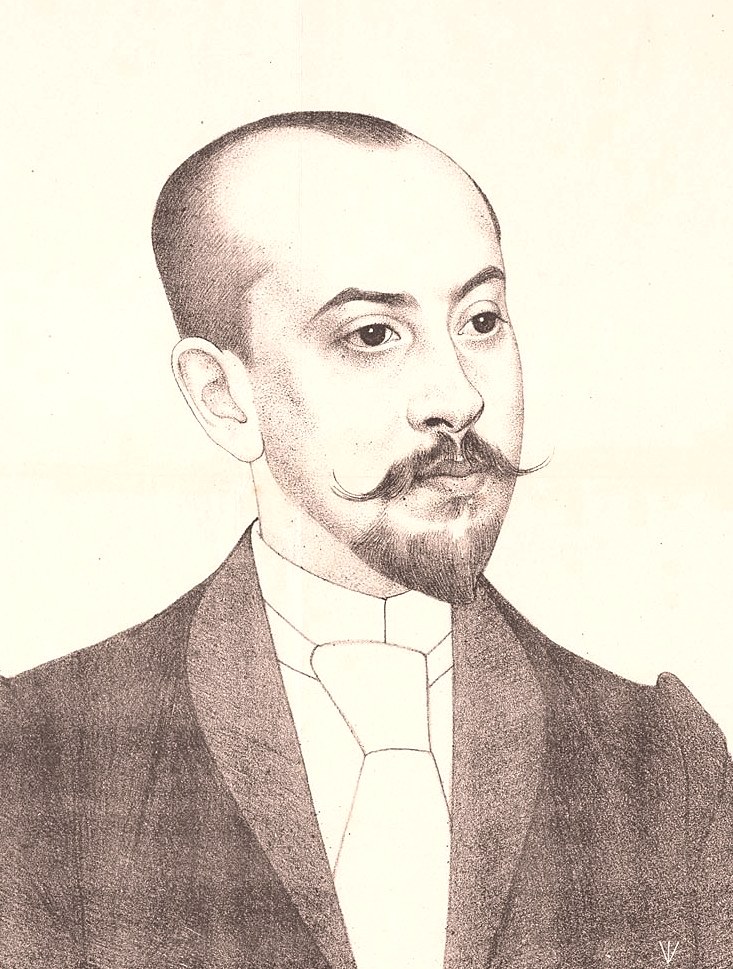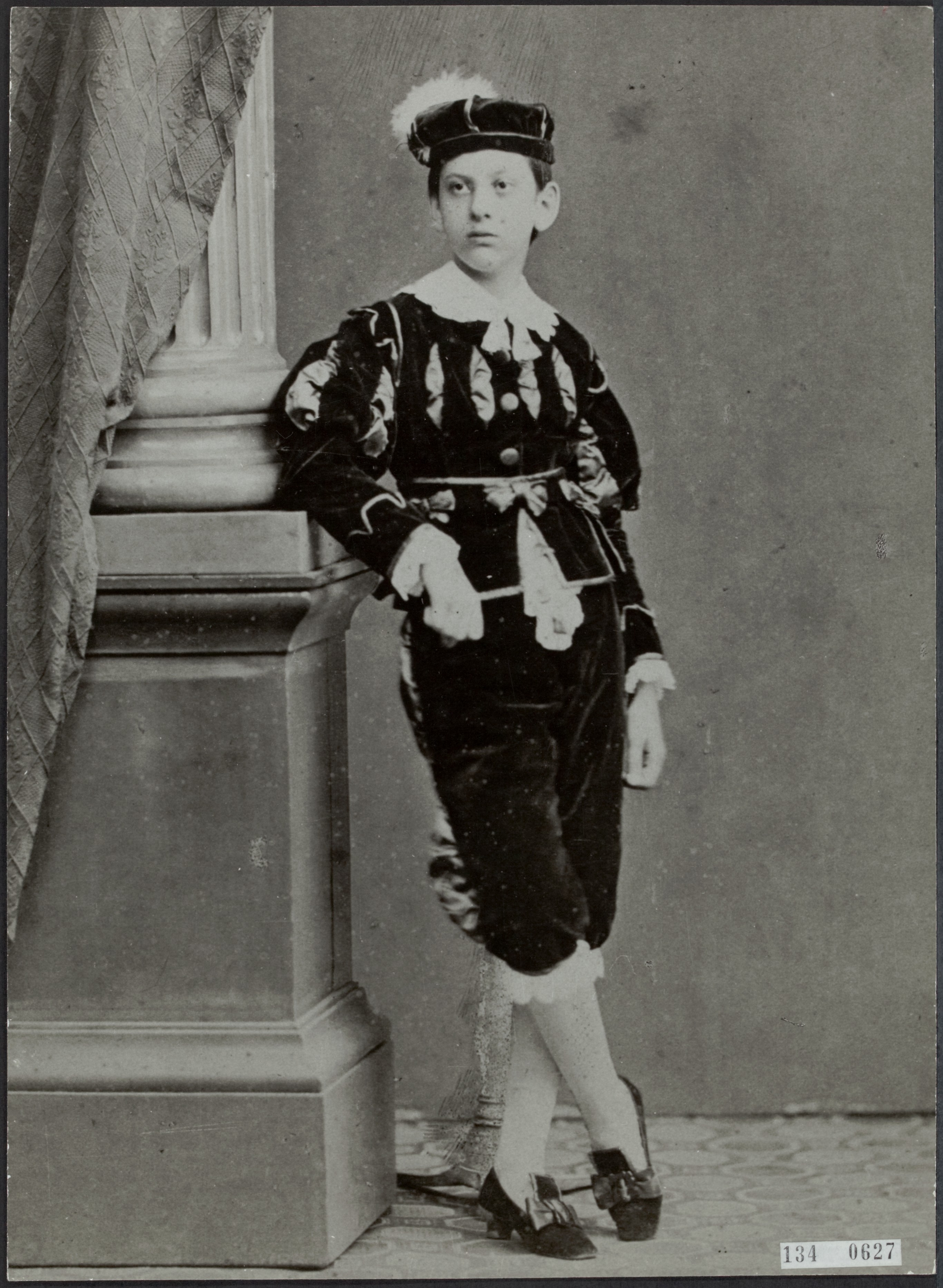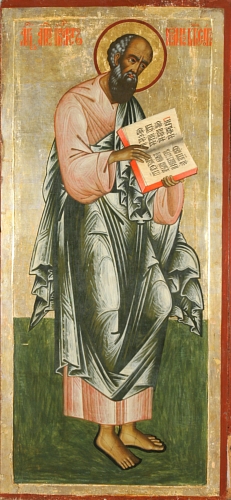|
A Ribbon Of Poems
''A ribbon of poems'' (Dutch: ') was the literary debut of Dutch writer Louis Couperus. The collection of poetry ''A ribbon of poems'' (23 poems) received a good review by critic J.H. van Hall in the Dutch literary magazine "The Gids"; Van Hall compared Couperus' poetry with those written by Heinrich Heine, Everhardus Johannes Potgieter and Pieter Corneliszoon Hooft; Jan ten Brink, Couperus' teacher and later professor at the University of Leiden drew comparisons with Constantijn Huygens. Not every critic however was that positive; Couperus' debut was also termed "contrived and effeminate". Description History Couperus started to write poetry while studying with professor Jan ten Brink. While writing the poems for ''A ribbon of poems'' Couperus was inspired by poets from classical antiquity. He wrote most of the poems while living with his father, John Ricus Couperus, mother and brothers and sisters at the Nassauplein in The Hague in 1882-1883. The tone of the poetry was called ... [...More Info...] [...Related Items...] OR: [Wikipedia] [Google] [Baidu] |
Louis Couperus
Louis Marie-Anne Couperus (10 June 1863 – 16 July 1923) was a Dutch novelist and poet. His oeuvre contains a wide variety of genres: lyric poetry, psychological and historical novels, novellas, short stories, fairy tales, feuilletons and sketches. Couperus is considered to be one of the foremost figures in Dutch literature. In 1923, he was awarded the ''Tollensprijs'' (Tollens Prize). Couperus and his wife travelled extensively in Europe and Asia, and he later wrote several related travelogues which were published weekly. Youth Louis Marie-Anne Couperus was born on 10 June 1863 at Mauritskade 11 in The Hague, Netherlands, into a long-established, '' Indo'' family of the colonial landed gentry of the Dutch East Indies. He was the eleventh and youngest child of John Ricus Couperus (1816–1902), a prominent colonial administrator, lawyer and ''landheer'' or lord of the private domain ('' particuliere land'') of Tjikopo in Java, and Catharina Geertruida Reynst (1829–1893). ... [...More Info...] [...Related Items...] OR: [Wikipedia] [Google] [Baidu] |
Petrarch
Francesco Petrarca (; 20 July 1304 – 18/19 July 1374), commonly anglicized as Petrarch (), was a scholar and poet of early Renaissance Italy, and one of the earliest humanists. Petrarch's rediscovery of Cicero's letters is often credited with initiating the 14th-century Italian Renaissance and the founding of Renaissance humanism. In the 16th century, Pietro Bembo created the model for the modern Italian language based on Petrarch's works, as well as those of Giovanni Boccaccio, and, to a lesser extent, Dante Alighieri. Petrarch was later endorsed as a model for Italian style by the Accademia della Crusca. Petrarch's sonnets were admired and imitated throughout Europe during the Renaissance and became a model for lyrical poetry. He is also known for being the first to develop the concept of the " Dark Ages".Renaissance or Prenai ... [...More Info...] [...Related Items...] OR: [Wikipedia] [Google] [Baidu] |
1886 Poetry Books
Events January–March * January 1 – Upper Burma is formally annexed to British Burma, following its conquest in the Third Anglo-Burmese War of November 1885. * January 5– 9 – Robert Louis Stevenson's novella ''Strange Case of Dr Jekyll and Mr Hyde'' is published in New York and London. * January 16 – A resolution is passed in the German Parliament to condemn the Prussian deportations, the politically motivated mass expulsion of ethnic Poles and Jews from Prussia, initiated by Otto von Bismarck. * January 18 – Modern field hockey is born with the formation of The Hockey Association in England. * January 29 – Karl Benz patents the first successful gasoline-driven automobile, the Benz Patent-Motorwagen (built in 1885). * February 6– 9 – Seattle riot of 1886: Anti-Chinese sentiments result in riots in Seattle, Washington. * February 8 – The West End Riots following a popular meeting in Trafalgar Square, London. * F ... [...More Info...] [...Related Items...] OR: [Wikipedia] [Google] [Baidu] |
Pieter Cornelis Boutens
Pieter Cornelis BoutensHis original family name was changed from Bouters to Boutens by a decision of the District Court of Middelburg, 14 March 1898, Act No. 79 (February 20, 1870 – March 14, 1943) was a Dutch poet, classicist, and mystic. Biography Boutens was born in Middelburg. He grew up in Zeeland in a strict, Protestant middle-class environment. After finishing the Gymnasium Middelburg, he began to study classical languages in 1890 at the University of Utrecht, and graduated in 1899 on a study of the Greek comedy writer Aristophanes. His debut as a poet was the ''Utrecht Student Almanac'' in 1891. His early work was inspired by the ''verses'' of Herman Gorter; later sources of inspiration were Plato, Sappho and the Bible. Boutens' style became based on the idea of achieving a "higher reality". In the course of 45 years, he published some 20 volumes of poetry, but also a large number of translations of Ancient Greek (i.a. ''Ilias'' and ''Odyssey''), Persian, French, Ge ... [...More Info...] [...Related Items...] OR: [Wikipedia] [Google] [Baidu] |
Albert Vogel Sr
Albert may refer to: Companies * Albert (supermarket), a supermarket chain in the Czech Republic * Albert Heijn, a supermarket chain in the Netherlands * Albert Market, a street market in The Gambia * Albert Productions, a record label * Albert Computers, Inc., a computer manufacturer in the 1980s Entertainment * ''Albert'' (1985 film), a Czechoslovak film directed by František Vláčil * ''Albert'' (2015 film), a film by Karsten Kiilerich * ''Albert'' (2016 film), an American TV movie * ''Albert'' (Ed Hall album), 1988 * "Albert" (short story), by Leo Tolstoy * Albert (comics), a character in Marvel Comics * Albert (''Discworld''), a character in Terry Pratchett's ''Discworld'' series * Albert, a character in Dario Argento's 1977 film ''Suspiria'' Military * Battle of Albert (1914), a WWI battle at Albert, Somme, France * Battle of Albert (1916), a WWI battle at Albert, Somme, France * Battle of Albert (1918), a WWI battle at Albert, Somme, France People * Albert (given ... [...More Info...] [...Related Items...] OR: [Wikipedia] [Google] [Baidu] |
Orchids, A Collection Of Prose And Poetry
''Orchids, a collection of prose and poetry'' (Dutch: ') is a collection of prose and poetry written by Dutch writer Louis Couperus, which was published in 1886. Couperus published his debut, ''A ribbon of poems'' (Dutch: ') in 1886 with publisher J.L. Beijers. The rights to publish Couperus' books were taken over by publisher A. Rössing, who then published the second book of Couperus, ''Orchids, a collection of prose and poetry''. After Rössing filed for bankruptcy in 1890 the rights were taken over by L.J. Veen, who would publish the second edition in 1895. In 1989 Veen would reprint ''Orchids'', when Couperus' complete works were published. Description Couperus wrote the poems that were collected in this book in 1884 and 1885. In July 1886 he wrote to his sister Trudy: ''During the autumn I intend to reprint my verses and prose under the name of "Orchids". Don't you think that title is quite chic and aristocratic?'' In ''Orchids, a collection of prose and poetry'' Couperus ... [...More Info...] [...Related Items...] OR: [Wikipedia] [Google] [Baidu] |
John The Apostle
John the Apostle ( grc, Ἰωάννης; la, Ioannes ; Ge'ez: ዮሐንስ;) or Saint John the Beloved was one of the Twelve Apostles of Jesus according to the New Testament. Generally listed as the youngest apostle, he was the son of Zebedee and Salome. His brother James was another of the Twelve Apostles. The Church Fathers identify him as John the Evangelist, John of Patmos, John the Elder, and the Beloved Disciple, and testify that he outlived the remaining apostles and was the only one to die of natural causes, although modern scholars are divided on the veracity of these claims. John the Apostle is traditionally held to be the author of the Gospel of John, and many Christian denominations believe that he authored several other books of the New Testament (the three Johannine epistles and the Book of Revelation, together with the Gospel of John, are called the Johannine works), depending on whether he is distinguished from, or identified with, John the Evangeli ... [...More Info...] [...Related Items...] OR: [Wikipedia] [Google] [Baidu] |
Book Of Revelation
The Book of Revelation is the final book of the New Testament (and consequently the final book of the Christian Bible). Its title is derived from the first word of the Koine Greek text: , meaning "unveiling" or "revelation". The Book of Revelation is the only apocalyptic book in the New Testament canon. It occupies a central place in Christian eschatology. The author names himself as simply "John" in the text, but his precise identity remains a point of academic debate. Second-century Christian writers such as Papias of Hierapolis, Justin Martyr, Irenaeus, Melito of Sardis, Clement of Alexandria, and the author of the Muratorian fragment identify John the Apostle as the "John" of Revelation. Modern scholarship generally takes a different view, with many considering that nothing can be known about the author except that he was a Christian prophet. Modern theological scholars characterize the Book of Revelation's author as " John of Patmos". The bulk of traditional s ... [...More Info...] [...Related Items...] OR: [Wikipedia] [Google] [Baidu] |
Williswinde
''Williswinde'' is a collection of verses written by Dutch writer Louis Couperus. The first edition (1.250 books were printed for this edition) was published by L.J. Veen in 1895. In 1904 Veen acquired full rights of ''Williswinde'' and 16 other works that were written by Couperus. For the first edition in 1894 Couperus received 200 guilders and the poems by that time had already been published in a number of Dutch newspapers and magazines. However Couperus had some difficulty to get the poem ''Williswinde'' published, as he wrote in a letter to a colleague, Smit Kleine. The book cover was designed by painter Ludwig Willem Reymert Wenckebach. Description The content of ''Williswinde'' was: ''Voorrede'' (Preface), ''Weemoed'' (Melancholy), ''Viviane'', ''Williswinde'', ''Ginevra'', ''Semiramis'', ''Fragmenten uit Johannes' Apocalyps'' (Fragments from the ''Book of Revelation'' of John) and ''Verantwoording'' (Accountability). The verses were written in iambs. In a review in the Alg ... [...More Info...] [...Related Items...] OR: [Wikipedia] [Google] [Baidu] |
Verse (poetry)
A verse is formally a single metrical line in a poetic composition. However, verse has come to represent any grouping of lines in a poetic composition, with groupings traditionally having been referred to as stanzas. Verse in the uncountable (mass noun) sense refers to poetry in contrast to prose. Where the common unit of verse is based on meter or rhyme, the common unit of prose is purely grammatical, such as a sentence or paragraph. Verse in the second sense is also used pejoratively in contrast to poetry to suggest work that is too pedestrian or too incompetent to be classed as poetry. Types of verse Rhymed verse Rhymed verse is historically the most commonly used form of verse in English. It generally has a discernible meter and an end rhyme. I felt a Cleaving in my Mind – As if my Brain had split – I tried to match it – Seam by Seam – But could not make them fit. The thought behind, I strove to join Unto the thought before – But S ... [...More Info...] [...Related Items...] OR: [Wikipedia] [Google] [Baidu] |
Nijmegen
Nijmegen (;; Spanish and it, Nimega. Nijmeegs: ''Nimwèège'' ) is the largest city in the Dutch province of Gelderland and tenth largest of the Netherlands as a whole, located on the Waal river close to the German border. It is about 60 km south east of Utrecht and 50 km north east of Eindhoven. Nijmegen is the oldest city in the Netherlands, the second to be recognized as such in Roman times, and in 2005 celebrated 2,000 years of existence. Nijmegen became a free imperial city in 1230 and in 1402 a Hanseatic city. Since 1923 it has been a university city with the opening of a Catholic institution now known as the Radboud University Nijmegen. The city is well known for the International Four Days Marches Nijmegen event. Its population in 2022 was 179,000; the municipality is part of the Arnhem–Nijmegen metropolitan area, with 736,107 inhabitants in 2011. Population centres The municipality is formed by the city of Nijmegen, incorporating the former villages o ... [...More Info...] [...Related Items...] OR: [Wikipedia] [Google] [Baidu] |
Carpe Diem
is a Latin aphorism, usually translated "seize the day", taken from book 1 of the Roman poet Horace's work ''Odes'' (23 BC). Translation is the second-person singular present active imperative of '' carpō'' "pick or pluck" used by Horace to mean "enjoy, seize, use, make use of". ''Diem'' is the accusative of ''dies'' "day". A more literal translation of would thus be "pluck the day s it is ripe—that is, enjoy the moment. It has been argued by various authors that this interpretation is closer to Horace's original meaning. History Sources Text from ''Odes'' 1.11: In ancient literature Perhaps the first written expression of the concept is the advice given by Siduri to Gilgamesh, telling him to forgo his mourning and embrace life, although some scholars see it as simply urging Gilgamesh to abandon his mourning, "reversing the liminal rituals of mourning and returning to the normal and normative behaviors of Mesopotamian society." Meaning In Horace, the phrase is part ... [...More Info...] [...Related Items...] OR: [Wikipedia] [Google] [Baidu] |









